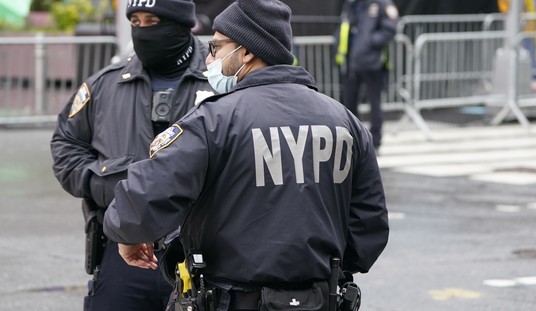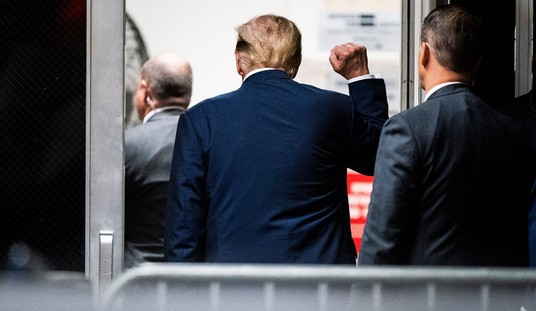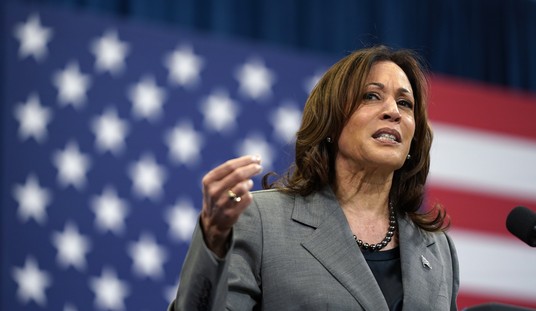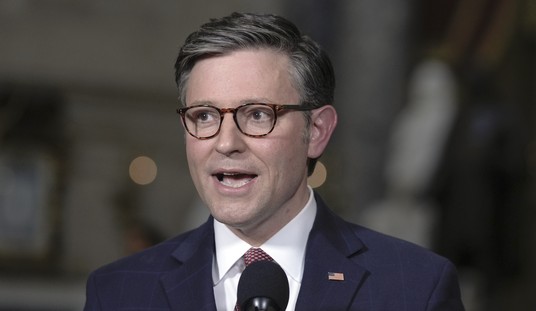From the diaries. – Caleb
Only last week I wrote a piece The Next President, Seeking a Legacy of Leadership, in which I responded to a commenter with:..I’d love to be able to talk to many of the candidates…
…and lo and behold, a member of Herman Cain’s staff calls to ask if I’d like to talk to Mr Cain.
So, on New Year’s Eve we sat down for a teleconference, and Mr Cain was nice enough to give me almost an hour. For background, I met Mr Cain once before, in a private meeting in July as part of a group who briefed him on GOTV (The Concord Project) and the Precinct Project, both well known subjects here at RedState.
This is the first of two parts, as I’d like to deal with Mr Cain’s views on leadership in this piece, and whether a man from the private sector is qualified to be President, in the second, which is a hot-button issue with me.
I won’t do a bio here, as Mr Cain is already well known at RS. You listened to him and shook his hand if you were at the RedState Gathering in September. His speeches are all over the internet, and I suggest you watch one…and compare. (There’s a reason for this.) His reputation as a corporate executive is also legend, having pulled a national company (Godfather’s Pizza), back from the ashes and to good health in the late 1980’s, where it remains today…along with a second generation of leadership who earned their spurs under Mr Cain’s tutelage. Godfather’s had all but been written off by its parent company when Mr Cain was brought in to perform major surgery. He understands “rescue management”.
We’re almost the same age (I’m 8 days older), and both of us come with a history in the private sector. He’s much more photogenic and phonogenic, though I know more cuss words in Russian, and probably more of the dark alleyways of the Left. An imposing man, when I met him in July, I thought “What a wonderful juxtaposition” standing next to Barack Obama in a debate, for even in the finest cut of clothes Barack Obama can barely fill out a suit, while Herman Cain can go bear hunting with a switch. It would be like Mr Peepers standing next to Rosie Grier; a Chevy Volt next to a Humvee.
But before I met him, I watched him as he did a radio show at the Americans for Prosperity Conference the day before he gave his speech. You can always tell a lot about a person based on how they interact with people. He is genuinely congenial, with an infectious laugh, which also means he was polite enough to laugh at my jokes. And he makes eye contact, which many of you may think is trivial, but is of great importance to both the student and practitioner of leadership. I watched his speech at the Americans for Prosperity event in July and he received standing cheers. Not an ovation, mind you, cheers.
As a note, it’s way above my pay grade to presume any potential candidate is Grade A presidential material. They have their own people who do the handicapping for them. One of my main interests in Herman Cain, even a long time ago, was that whenever his name was mentioned as a possible candidate, the caveat was made; he had never had any “public management experience”. I had been told, even here at RS, that he could not win the nomination or the election. Why? I asked. “Because it had never been done before”. Case closed.
That will be Part II of this interview.
With those things in mind, I prefaced our talk with two observations: 1) That having executive management experience, even in government, does not automatically qualify one as a leader, as there are “intangibles” that make the distinction between management and leadership more clear, and 2) a point I’ve been trying to drive home here for over a year, and that is, if we are to win…really win…we have to be a movement that lasts a generation, not just a blink of a decade. That requires not just leadership, but a legacy of leadership, all of which requires new templates and new definitions so the next leader in the White House can stay on the Right course.
During this interview Mr Cain gave me his input on what he considers important in the leadership role. He starts out with an acronym for what he calls his operating principles of problem-solving; WAR:
WORK on the right problem
ASK the right questions
REMOVE areas that present barriers
…then went onto say that in “Healthcare Deform” the President and the Democrats in Congress
…were working on the wrong problem, which was to make a power grab of 1/6th of the American economy, having nothing to do with fixing any problem in the American health care system……which (he went on) is 80% healthy and fine.
I pointed out that in the private sector one can be a dictator, whereas in the government, the leader must be able to create the political will in others to go along with his solutions, as well as deflect those who have every intent on seeing him fail. His answer segued perfectly into the “intangibles of leadership” capped off with an example of stunning simplicity to prove his point:
“At Godfathers I was a benevolent dictator”…(which places him somewhere between Don Rumsfeld and Dick Cheney, which seemed about right considering the hard choices that had to be made at Godfathers)…you have to identify and remove impediments early on, while keeping everyone else energized and optimistic about the mission…
…then went on to mention President Obama’s embarrassing comment to Sen McCain at the Healthcare roundtable, where he reminded McCain, “I am the president.” (I won, dammit, not you.)
The worst thing a leader can do is remind everyone he has the final say-so. Everybody in the world already knows he’s the president.” (VB: Indeed, what a childish…and psychologically revealing thing to say.)
The biggest problem America faces today is a lack of leadership…in the White House, in the Congress, and in the federal government.
The Intangibles of Leadership
Then Mr Cain went to the heart of the “intangibles”…
What many people forget is that the president, beyond being head of the party and chief executive of the government (VB: these are essentially management positions)…he is the spokesman for the People. He is their chief advocate. His principal customers aren’t Congress or his party, but the People. In fact, he is the only national advocate they all have. (VB: This is how Reagan was able to get his agenda passed in a Democrat Congress, by taking his case directly to the people.)
It’s the president’s job to inform them about the rights and duties of citizenship, and the true purposes of government, to create an attitude of self-confidence in their own abilities, to know that all the answers are found within themselves.
There is no Department of Happy in Washington.
Make sure the American people know what we’re doing, why we’re doing it, and how we’re going to do it.
To all the wonks out there, the obvious may have escaped you, but in order to accomplish these things one must first establish a relationship with the people. A face to face relationship. Sometimes I think that this sounding so simple is why so few executive managers try it, but indeed it lay at the heart of leadership. Of course you have you back it up with skill and knowledge, as Mr Cain laid out in his WAR principles, but as every Vietnam vet forward knows, a unit coming home intact often was a result of the intangible personal touch of that one commanding officer, who knew each of his hundred men, and had looked each of them in the eye. Soldiers in the field dreaded those “salutin’ demons” like the plague, for they were often the cause of many casualties.
Mr Cain told it this way, from an episode he had with the front office receptionist when he was head of the National Restaurant Association.
She came into my office one day and said she was a little discouraged and thinking about going back to school. “After all, the job I do here is really nothing”, she said.
When I first went to the NRA I got rid of the automated answering machines and insisted that the first voice a person heard when calling would be a human one. (VB: How nice!) I told Lisa why she was there and that she was in fact our ‘director of first impressions’, as it was her voice that set the tone for everything else that went on for callers and visitors.
She walked out of the office a changed person.
There’s more to this than you know. I’ve been in a lot of executive offices. All executives know intimately that lady just outside the door, the personal secretary or personal assistant. But few actually know that person in the next cubicle over, often not even by name. In the elevator that person might even get the “thousand yard stare”, which is what the Indians called the way the British ignored them on public streets in colonial times. If you look for it, you still see this everywhere…no one making eye contact, or any kind of personal acknowledgment. It’s not just that the boss knows you exist, but cares, that instills in people the urge to follow.
Many people thought that Barack Obama had this special ability to connect. But a close look at his eyes tells you otherwise…and that cast of indifference is slowly being engraved all over his face. He just couldn’t fake it very long. That look of indifference has long been associated with the face of government in general and bureaucracy in particular. It is often equated with disdain.
If the People are not part of the equation in restoring the Constitution and this American dream, then I will say, no matter how managerially capable, that man or woman will fail, for they will not have summoned sufficient support from the American people to complete their principal mission, let alone pass it on. To me, that thousand yard stare is a disqualifier, unless, using Erick Erickson’s other qualifier…that guy gets the nomination anyway. Then I’ll vote for him.
But I’d rather go down with a leader, than rise with a manager.
The Legacy of Leadership
Moreover, there will be nothing to pass onto to the next generation of leaders; that continuity of leadership.
As I wrote earlier (above) I specifically mentioned Ronald Reagan, and my sadness that he had left no conservative legacy to his successor. Mr Cain, who has written three books on leadership (see them at Amazon.com), was quick to grab this notion from me, mentioning…
(that his “legacy” at Godfather’s) is the current generation at Godfather’s, set in place by me, and it is still a good, profitable company.
In the private sector one of the principal jobs of an executive is to insure a continuity of leadership. Great leaders leave the organization strong enough to move forward.
In Washington, my job would be 1) to get the country on the right track 2) Put the right people in the right places and 3) Identify and train the next generation of leaders.
I know, the devil’s in the details, and when we talk about intangibles, there’s always a shortage of details. And there aren’t handbooks on these details.
But when Ronald Reagan took on the Marxists while they were primarily stationed halfway across the world in Russia, he used those intangibles, went to the American people and brought the Evil Empire down, with both an awful lot of technical insider-management-details (i.e., he picked good people) and one-on-one leadership. For when crunch time came, with Gorbachev at Reykjavik, he fell back on “intangibles” no one can put down on a resume or list in a book, but which it seems, both the American people and the Soviets knew he had. The Marxists blinked.
Without saying an untoward word about any other candidate out there I am confident that Herman Cain has the ability to stare that same Left down now that it is perched so very much closer to home.
(OPO)














Join the conversation as a VIP Member